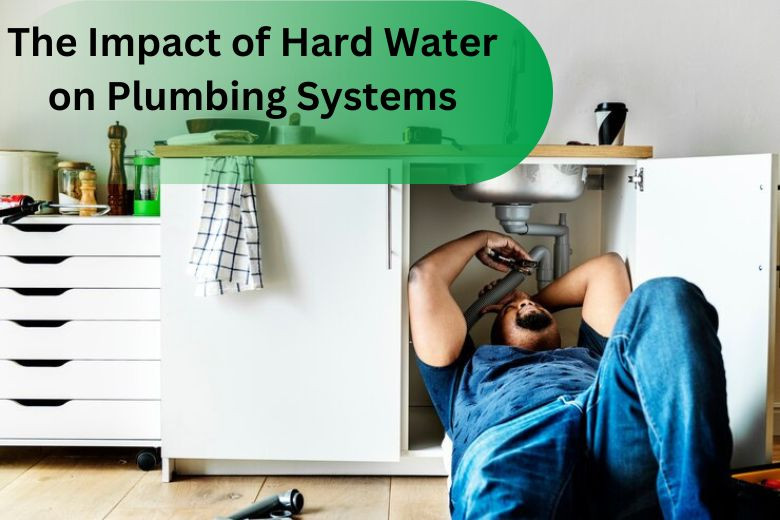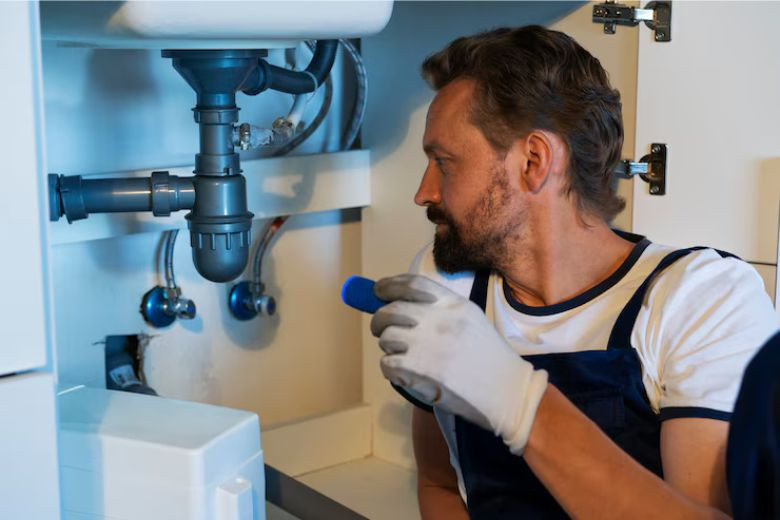The Impact of Hard Water on Plumbing Systems
Posted on September 17, 2024 by Admin

One of the main common problems in many homes is hard water, which contains a large amount of dissolved minerals such as calcium and magnesium. It might not cause major health conditions, but the impact on plumbing systems can be huge, causing really expensive repairs and failures. Hiring a Plumber Service Provider can help identify and address hard water issues effectively. Thus, learning how hard water is affecting your plumbing system should give you every reason to take preventive measures for the longevity of your pipes and appliances.
The Science Behind Hard Water
Groundwater is the source of hard water. Generally, the water picks up some minerals from any deposits run through, such as limestone, chalk, or gypsum, which are primarily made up of calcium and magnesium carbonates, adding to the hardness of the water. The hardness of the water becomes evident once it passes through your plumbing system. Residue that is left behind is called scale.
Scale Buildup and Its Consequences
One of the most apparent impacts of hard water is the scaling that is present in the inside parts of pipes and home appliances. Over time, the amount of mineral deposits grows and soon has the following implications:
1. Reduced Flow of Water:
With the accumulation of scale inside the pipes, it throttles the water-carrying passage, thereby reducing the flow and pressure of water. This can be a special problem in older homes where the pipes are smaller; that is, the impact of hard water can bring about substantial restriction to the flow of water in such cases.
2. Clogged Appliances:
The influence of hard water on domestic appliances like dishwater, clothes washer, and water heating equipment already constitutes a serious concern. Accumulated scale in water lines may plug them completely, leading to high inefficiency and a possible halt of the appliance itself.
3. High Energy Consumption:
The action of hard water mostly affects the water heater. The scale acts as an insulating layer between the heating element and the water, imposing a necessity for the heater to fight through; it has to fight harder to get to the desired temperature. The increased workload is directly proportional to energy consumption and, in turn, utility bills.
4. Frequent Repairs:
Therefore the effect of hard water can also be pointed out to the frequent repairs or replacement of plumbing fixtures and apparatus. The residue builds over time in faucets, showerheads, valves, etc., and would, therefore, need to be lined more frequently, which further reduces their life expectancy.

Effects in the Long Run on the Plumbing Infrastructure
The effects of hard water over a long period are devastating. Continual flow over the pipes causes them to corrode and leak. Not only does scale reduce the inside diameter of pipes and, therefore, flow rate of water, but it also chemically reacts with metal in pipes to increase the rate of corrosion. This can lead to pinhole leaks, which might ultimately cause pipe bursts, along with extensive, very expensive plumbing repairs.
Mitigating the Impact of Hard Water
Some remedies to prevent harmful effects caused by hard water on the plumbing system include the following:
1. Water Softeners:
In the water treatment market, water softening is likely the most effective way to combat hard water. These devices replace the calcium and magnesium ions with sodium or potassium ions, providing a decrease in water hardness.
2. Care:
Descaling the scales on these appliances from time to time can reduce the effects of hard water. The deposited minerals can be dissolved by descaling agents or vinegar.
3. Inspection of Pipes:
Regular professional checks by a plumber can detect bench signs of scaling and corrosion, thus intervention and repair measures.
Conclusion
Hard water is a cause of considerable worry for many homeowners regarding the effects on their plumbing system. Although these effects can range from low water pressure to higher energy use and frequent repairs, they can all turn out to be quite an expensive hassle. Consulting a Plumber Service Provider can help you find the best solutions to mitigate these issues. Knowing the implications of such actions and making prompt and proactive decisions, such as installing a water softener with good plumbing consideration, will reduce the negative effects of hard water, ensuring a more effective and long-lasting plumbing infrastructure.
Also Read :
The Benefits of Professional Drain Cleaning vs. DIY Methods
How to Prevent Water Damage in Your Home
How to Integrate Home Automation Systems with Existing Electrical Systems
How to Finance Your Roof Replacement: Loans, Grants, and Insurance
Roof Safety Tips for Homeowners
The Impact of Algae and Moss on Your Roof
How to Deal with Roof Leaks During a Storm
How to Create an Electrical Maintenance Plan for Your Home
Faqs
-
1. What is hard water, and how does it affect plumbing systems?
Hard water contains high levels of dissolved minerals, mainly calcium and magnesium. These minerals form scales inside pipes and appliances. This scaling reduces the flow of water and increases energy consumption as a result of the overheating of pipes and appliances. With time, it speeds up corrosion, which can be the cause of leaks and subsequent pipe bursts.
-
2. What are the long-term effects of hard water on the plumbing system?
Long-term, hard water will have a significant scale buildup that will narrow the passages in pipes, reducing pressure and ultimately the flow of water over time. Hard water can also corrode pipes and cause them to leak, which means large-scale repairs that are very expensive, and shorten the life of appliances hooked to your plumbing because they are clogged and inefficient.
-
3. How to reduce the effects of hard water on my plumbing system?
A water softener, which changes leaching minerals that are responsible for hardening of water with sodium or potassium ions, may be installed to alleviate the effects. Also, periodic servicing of the appliances and use of descaling agents can help in easing accumulation of minerals. Furthermore, periodic checks by a professional plumber identify scaling and corrosion early enough for repair.
-
4. Are there any health risks associated with hard water?
There is a general belief that hard water will not be hazardous to health or cause any harmful health effects; it is absolutely safe to drink. However, its high mineral content might cause dry skin and hair and promote conditions like eczema. Of the many problems with hard water, most are centered around the effect on plumbing systems and household appliances, substantially increasing the cost of their maintenance and energy consumption.
Recent Post
- Top Plumbing Service Providers in Arizona, USA
- Top 10 Electrician Service Providers in Alabama, USA
- Top 20 Roof Repair Service Providers in Alabama, USA
- The Role of Roof Insulation in Energy Efficiency: Tips and Tricks
- Understanding Roof Damage from Wildlife and How to Prevent It
- How to Choose the Best Roofing Contractor for Emergency Repairs
- Roofing Maintenance for Historic Homes: Preserving Architectural Integrity
- The Importance of Proper Attic Ventilation for Roof Health
- How to Identify and Prevent Roof Mold and Mildew
- The Best Practices for Removing Snow from Your Roof